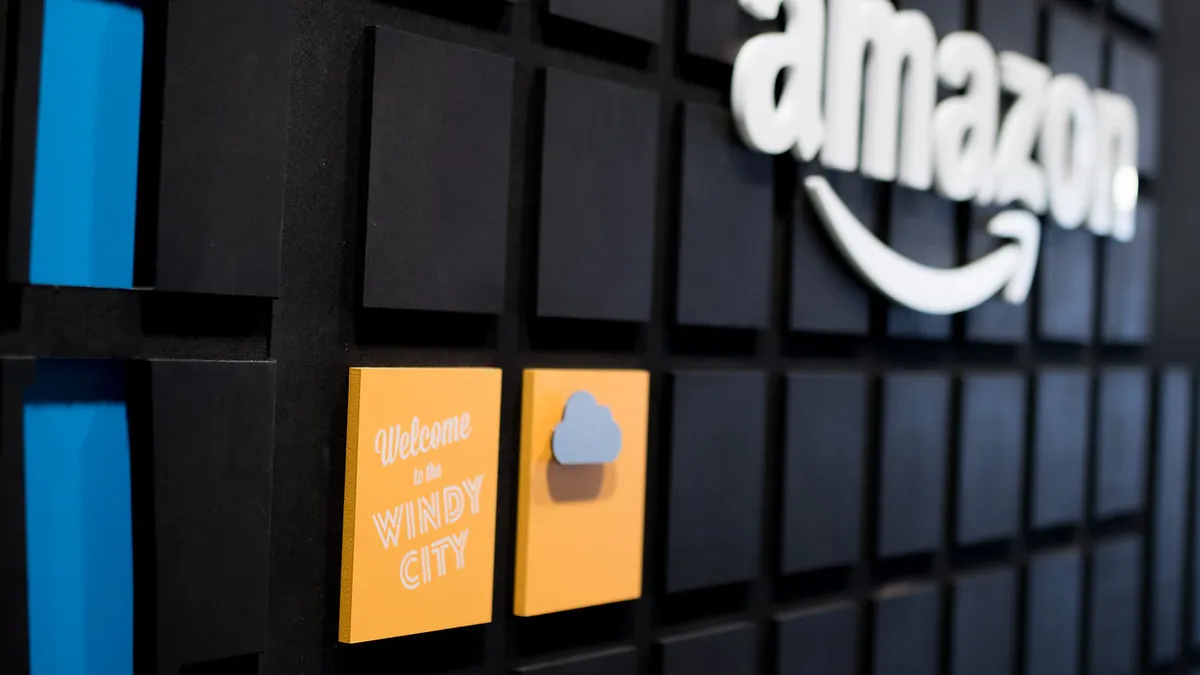Dive Brief:
-
Iowa, Delaware, California, Wyoming, New Jersey, Vermont, New York, Utah, New Hampshire and Florida are the top 10 states per capita of online entrepreneurs selling products in Amazon stores, according to a recent report by the e-commerce giant.
-
In 2019, more than 15,000 U.S. small and mid-sized businesses brought in over $1 million in sales with their Amazon stores and almost 25,000 made more than $500,000 in sales, according to Amazon's report.
-
Products from small and mid-sized businesses make up more than half of all goods sold through Amazon stores globally. Per its report, Amazon has small and mid-sized sellers in every state and more than 130 countries internationally.
Dive Insight:
Amazon invested resources into small businesses before the COVID-19 pandemic forced many retailers online. In 2019, the e-commerce giant devoted $15 billion in tools for third-party sellers. And last November, the company launched its Amazon Small Business Academy initiative to provide in-person seminars, community college courses and webinars to independent sellers.
The company noted in its report that 47 states now have more than 1,000 small and mid-sized businesses and 26 states have over 5,000. Iowa, which comes in first on Amazon's list, currently has almost 10,000 sellers. "Iowa is home to thousands of small and medium-sized businesses selling in Amazon's stores and we're working hard to support their growth despite the global pandemic," Keri Cusick, head of small business empowerment at Amazon, said in a statement.
Though Amazon has positioned itself as the go-to platform for independent sellers, its e-commerce operations have come under scrutiny lately. Last month, CEO Jeff Bezos faced questions from the U.S. House Judiciary Committee regarding the third-party sale of counterfeit goods on its platform. The hearing brought to light sellers' concerns about the platform's stronghold and sometimes tense relationship with its merchants.
Although the platform has taken steps recently to address the sale of fake goods, brands and retailers have taken different approaches to solving the problem. In June, Amazon debuted its counterfeit crime unit which will aid in the company's existing effort to battle the sale of fakes through its site. This month, the platform expanded its Amazon Project Zero initiative, which has the objective to "drive counterfeits to zero," to Australia, Brazil, Netherlands, Saudi Arabia, Singapore, Turkey, and the United Arab Emirates. But while Valentino worked with Amazon in court to fight alleged counterfeit sales, in the past Nike and Ikea pulled their products from the site.















